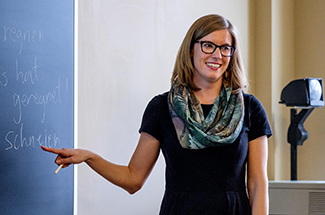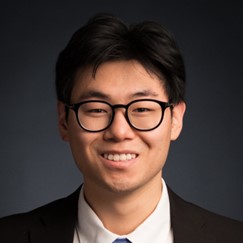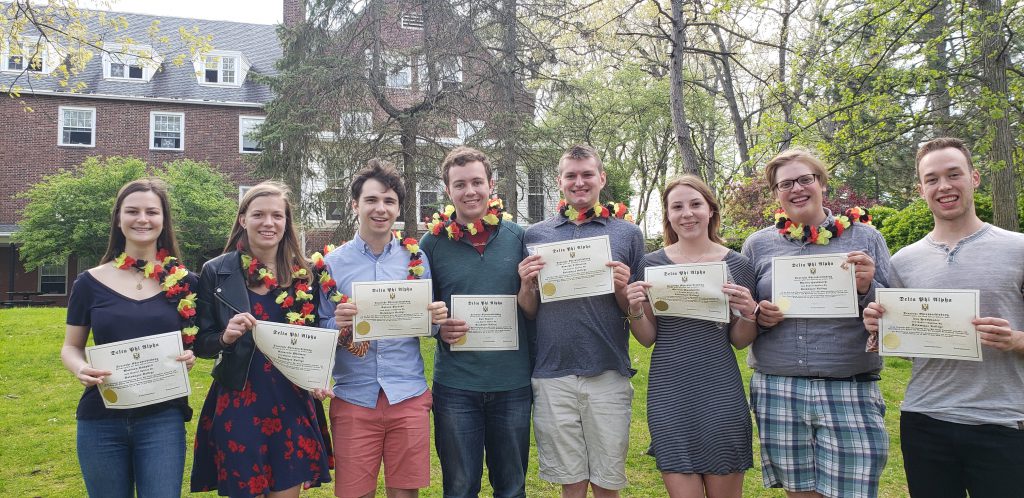
Why Study German at K?
At K you can read Kafka and Marx in their original language, gain a deeper appreciation for Beethoven and Schubert, understand Germany’s central role in guiding modern Europe, and learn how German businesses thrive in the global market.
As a German student, you will not only become proficient in the language, you will also learn how to critically think about history and culture while gaining lifelong skills in intercultural communication. Even in introductory courses, you will have the opportunity to explore complicated themes like migration, food politics, and sustainability.
At K, you will have the privilege of further honing your German conversation skills by learning from our native-speaking teaching assistants from Germany, who lead language labs and host fun activities, such as game nights, cooking classes, and Stammtisch (conversation circles). For complete immersion, you can take advantage of Kalamazoo College’s renowned study abroad program with three-, six-, or nine-month experiences in Lüneburg and Erlangen, Germany.
While German Studies is a well-rounded, standalone program, the lessons you learn—in courses like Myth of a Nation: German Film, Marx and the Arts, and Minority Cultures in Germany—can enhance your studies in other departments as well. In fact, many German courses are cross-listed with other departments like environmental studies; media studies; and women, gender, and sexuality.
Given the depth and breadth of the German Studies curriculum, you will leave K capable of applying your knowledge in a multitude of fields. Previous students have gone on to have meaningful careers in global relations, science, history and business.
What can you do with a German degree?
Below are some of the careers, employers, and graduate schools of our German alumni.
Careers
- Historian
- Journalist
- Teacher
- Foreign Service Officer
Employers
- Fulbright
- Security Magazine
- Northeastern University
Graduate Schools
- Georgetown University
- Friedrich-Alexander Universität Erlangen-Nürnberg
- University of Bonn
- Michigan State University
Program Spotlights
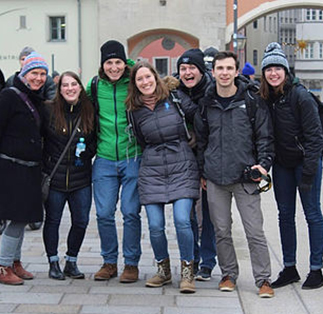
Study Abroad in Germany
Live in Lüneburg or Erlangen, Germany, for three to nine months to gain a first-hand understanding of German culture and language. While abroad, you will attend a month-long intensive language course, take classes at the local university, and go on organized trips across Germany and Austria. Erlangen students will additionally participate in an Integrative Cultural Project, where you intern with local organizations; past students have worked in refugee resettlement, nature conservation, and have even hosted a radio show!
Celebrate the K German community at Maifest
The department prides itself on the close relationships that students, faculty, and visiting international students form with one another as they rise through their German studies together, often from beginning German to the senior seminar. Maifest is an annual celebration of that community, which brings all our German students and faculty together to share in food, music and games as we usher in spring.

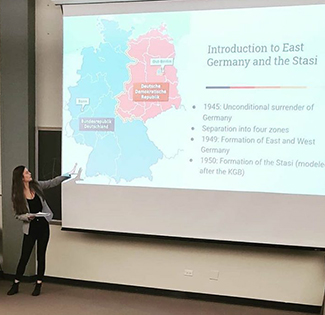
Showcase your knowledge in your Senior Integrated Project
German students often use their SIP as an opportunity to research their favorite topics from past courses or expand upon their internships while studying abroad–often returning to Germany with College funding to do so. Here you can see Madison Cambell ‘20 presenting the findings of her joint history and German SIP “Reclaiming Stasi Objects: The Stories of Jürgen Fuchs, Ulrike Poppe and Mario Röllig.”
Meet the Current Departmental Student Advisor
What is the best thing about being part of this department?
More than once have I heard from my colleagues about the enviously warm and connected nature of the German Department on campus. This community, made up of eager students, supplanted by helpful Visiting International TAs, supported by the German faculty, and rooted in our shared curiosity to learn German, is proudly the best part of my department.
What is your biggest piece of advice to first-years and sophomores about getting connected to your department?
Instead of advice, I have a question: why not? Why not engage with a department that empowers students to go from verb conjugation to reading entire novels in German in just two years? Why not leave college capable of reading Nietzsche, Schiller, Marx, and Goethe in their original language? Why not open the door to endless scholarship, fellowship, and research opportunities post-graduation?
What drew you to the department?
By replacing grammar charts, memorizing, and exams with innovative and interactive pedagogy, I had never been able to learn so much with such minimal stress. The department provides endless opportunities to interact with the language and culture of the German-speaking world, ranging from German game nights, to cooking German food, to a class revolving around a Netflix series, to Study Abroad.
How have you taken advantage of the flexible curriculum or experienced breadth in your education?
I came to college as a prospective Political Science major; now, I am neither a Poli Sci major nor minor. Without the open curriculum, I would not have been able to experiment in so many departments, including the German department. I have been able to discover a life-long passion in a language that I had never spoken before. Now, German is not only an engagement, but the focal point of my undergraduate experience.
What is your favorite thing about K?
My first professor at K told my class: “we [K-Faculty] teach at K because we love teaching just as much as our research. Usually more. Otherwise, we wouldn’t choose to be professors at a school like K.” During my time here, this has held true and has been my favorite part of my experience.
What is your Senior Integrated Project (SIP)?
I examine certain rulings from the Bundesverfassungsgericht, or German Constitutional Court, in the 1980s and 90s regarding Turkish Guest workers and their families in Germany. My analysis is based upon theoretical developments of transnational citizenship, transnational rights, the ‘human rights regime’, and state sovereignty.
What are your career aspirations/next steps after K?
To remain curious.

